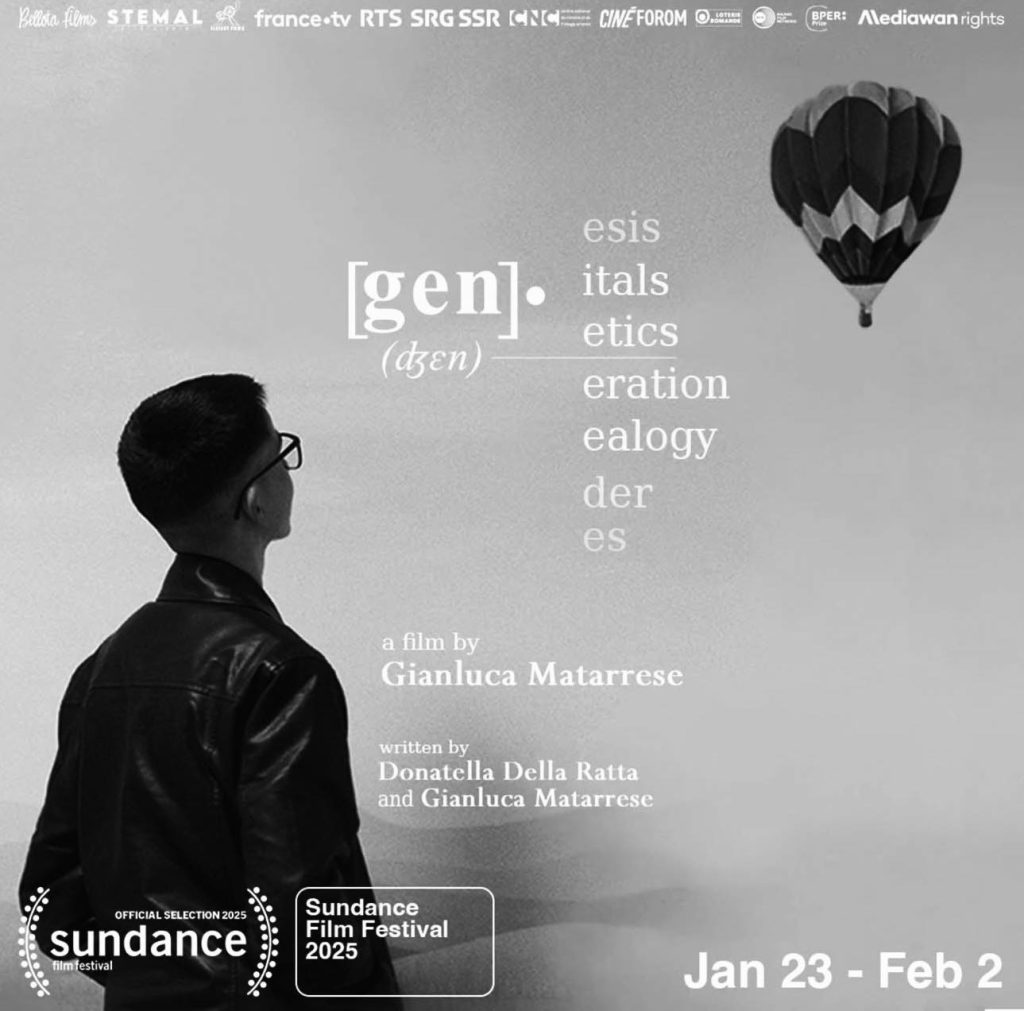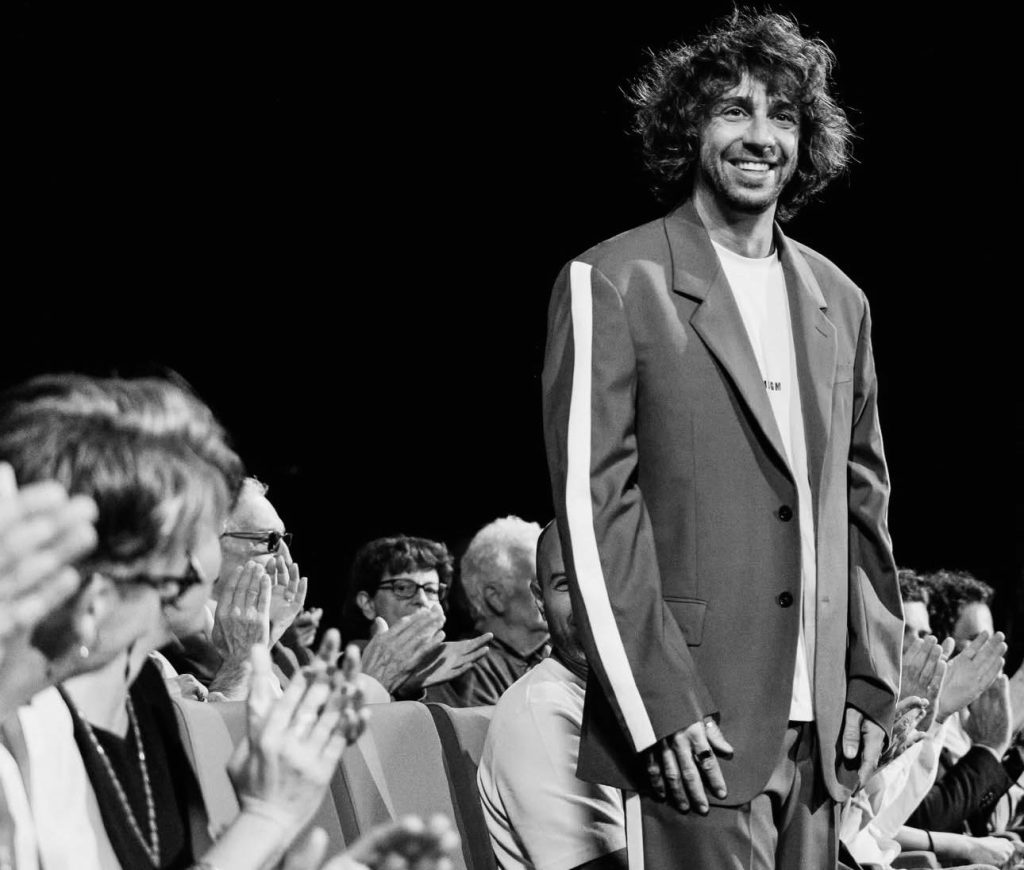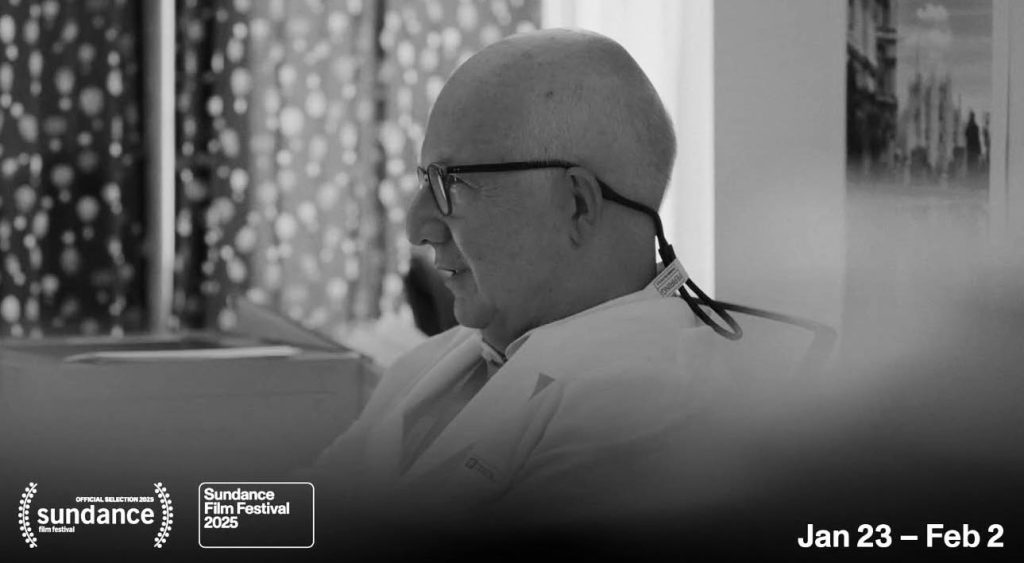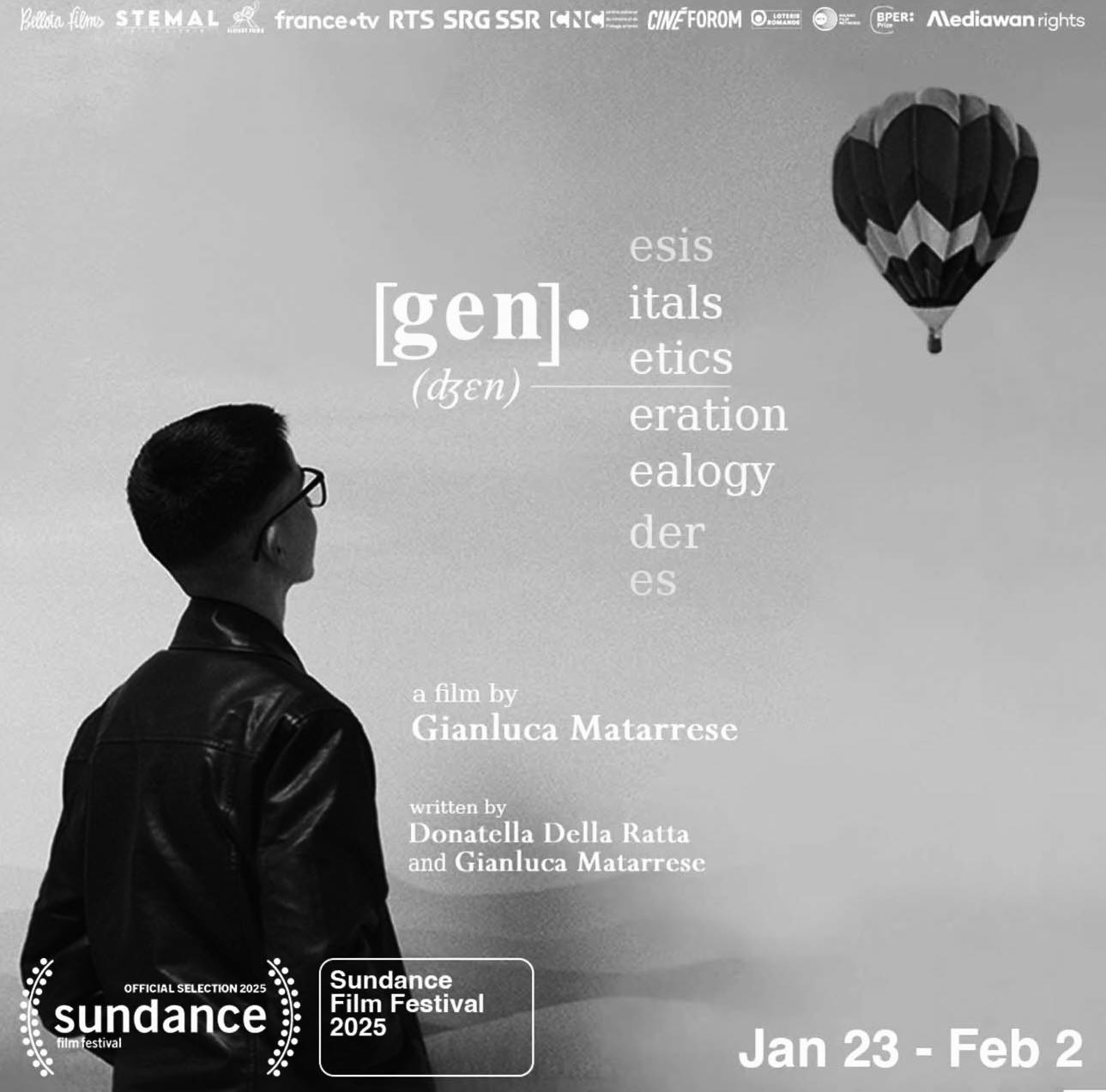
-) Who is Gianluca Matarrese?
I’m an Italian filmmaker with a passion for blending reality and fiction. My work often explores personal and collective histories, using humor and drama to dissect human contradictions. I was born in Italy, shaped by France, and my films navigate the tensions between intimacy and society, identity and performance.

-) How did the documentary GEN_ come to life?
GEN_ wasn’t initially my idea. I was invited into this world by Donatella Della Ratta, the co-author of the film and a professor of anthropology and media studies at John Cabot University in Rome. She was working on a book about the social history and political economy of hormones in in vitro fertilisation and gender assignment treatment. During her research, her gynecologist suggested she meet Dr. Bini in Milan, and she asked me to come along, knowing my interest in these themes. She had a hunch there might be a film in it. I brought my camera, as I often do in the early stages of a project, both for character studies and financing applications. But from that very first morning with Dr. Bini and his patients, it was clear, the film was already there, unfolding in front of us.
-) What would you change about the world?
I’d change the way we relate to care both how we give it and how we receive it. We live in a world that values individual success over collective well-being, and I think that’s a mistake. Whether it’s healthcare, relationships, or storytelling, I believe in the power of care as something that should be central, not secondary. If we restructured society around care instead of competition, we’d all be better off.

-) How do you imagine cinema in 100 years?
I imagine a cinema that has completely freed itself from traditional formats, where storytelling is more immersive and interactive, but without losing its emotional core. Maybe films will be experiences something you step into rather than just watch. But I hope that, despite all the technological advancements, we’ll still crave stories that move us, challenge us, and make us see the world differently. The tools will change, but the need for cinema as a shared human ritual will remain.
Hopefully, it won’t just be an algorithm predicting what we want to see before we even know it. I’d like to believe that, despite AI, VR, and whatever else comes next, people will still gather in a dark room, together, to be surprised. And maybe, finally, we’ll get rid of bad remakes.
-) If you could speak to a great director from the past whom you admire, who would you like to talk to and what would you ask them?
If I could have a conversation with a director from the past, I’d sit down with Billy Wilder. His ability to balance humor and cynicism, elegance and brutality, still amazes me. He had this razor-sharp wit, but underneath it, there was always a deep sense of human fragility. I’d ask him how he managed to walk that fine line, how he knew when to push the comedy and when to let the drama breathe. And I’d love to know what he thinks about today’s cinema: would he still believe in storytelling the way he did, or would he be disillusioned by the industry’s obsession with formulas? Most of all, I’d want to hear him talk not just about film, but about people, because he understood them better than most directors ever have.
-) WILD FILMMAKER is the leading platform in the world for the dissemination of Indie cinema. What does “being an Indie director” mean to you?
Being an indie director means embracing freedom, but also navigating constraints with creativity. It’s about making films because you have something urgent to say, not because the industry is asking for it. It means working with limited resources but infinite ideas, finding beauty in imperfection, and turning obstacles into narrative strengths. For me, it’s also about intimacy, being close to my subjects, whether real or fictional, and crafting stories that might not fit into conventional boxes. Independence isn’t just about financing; it’s about perspective, about resisting trends and trusting your own way of seeing the world.

